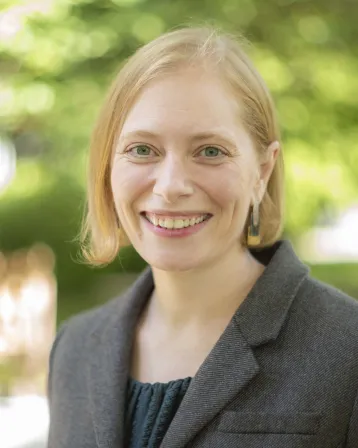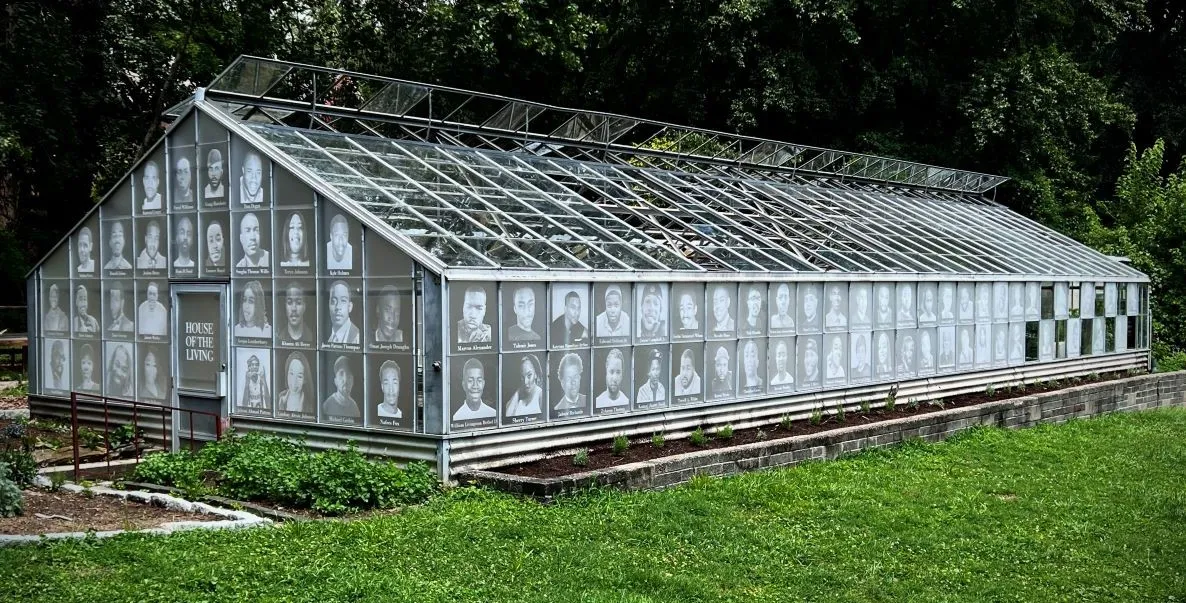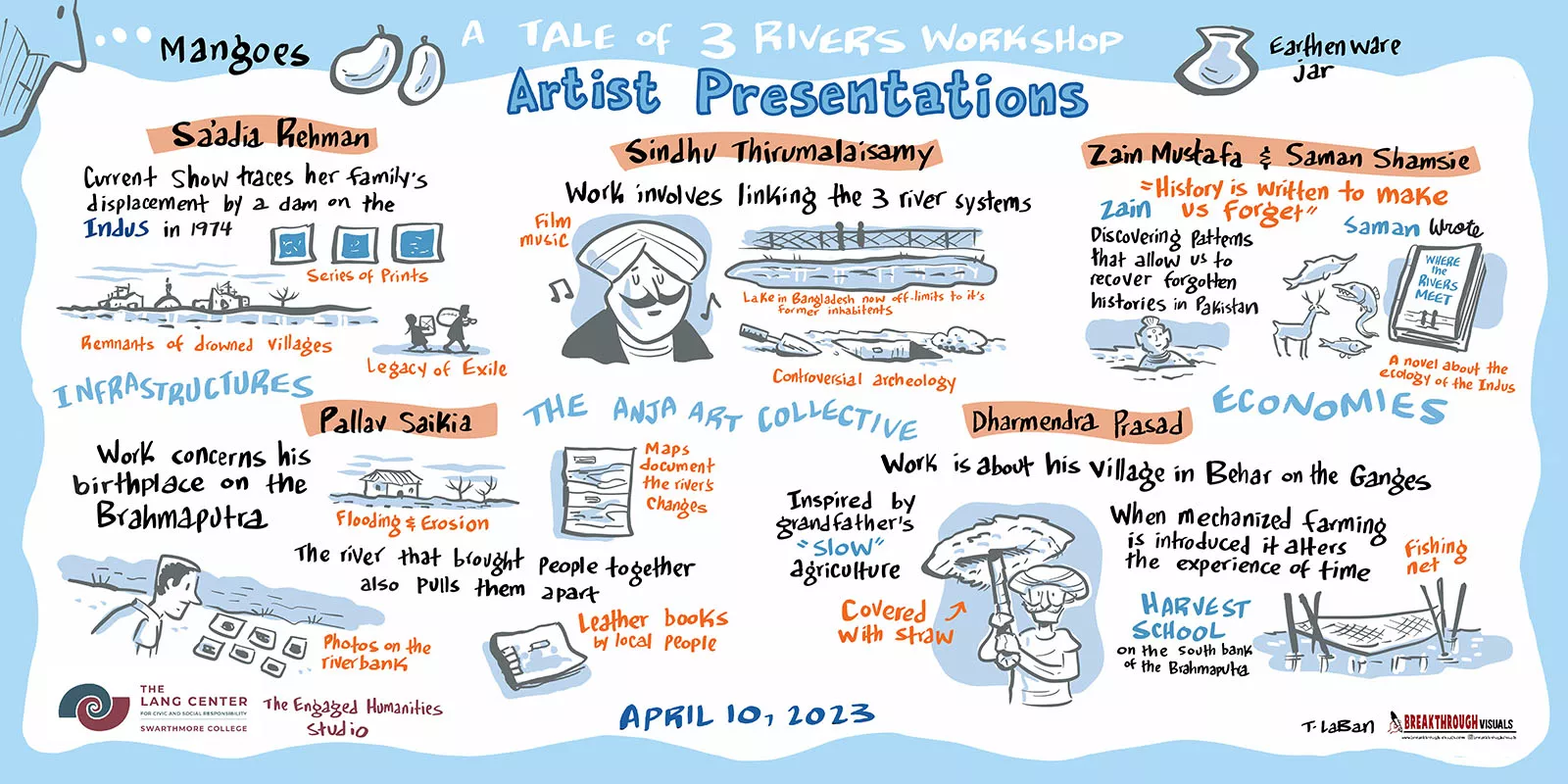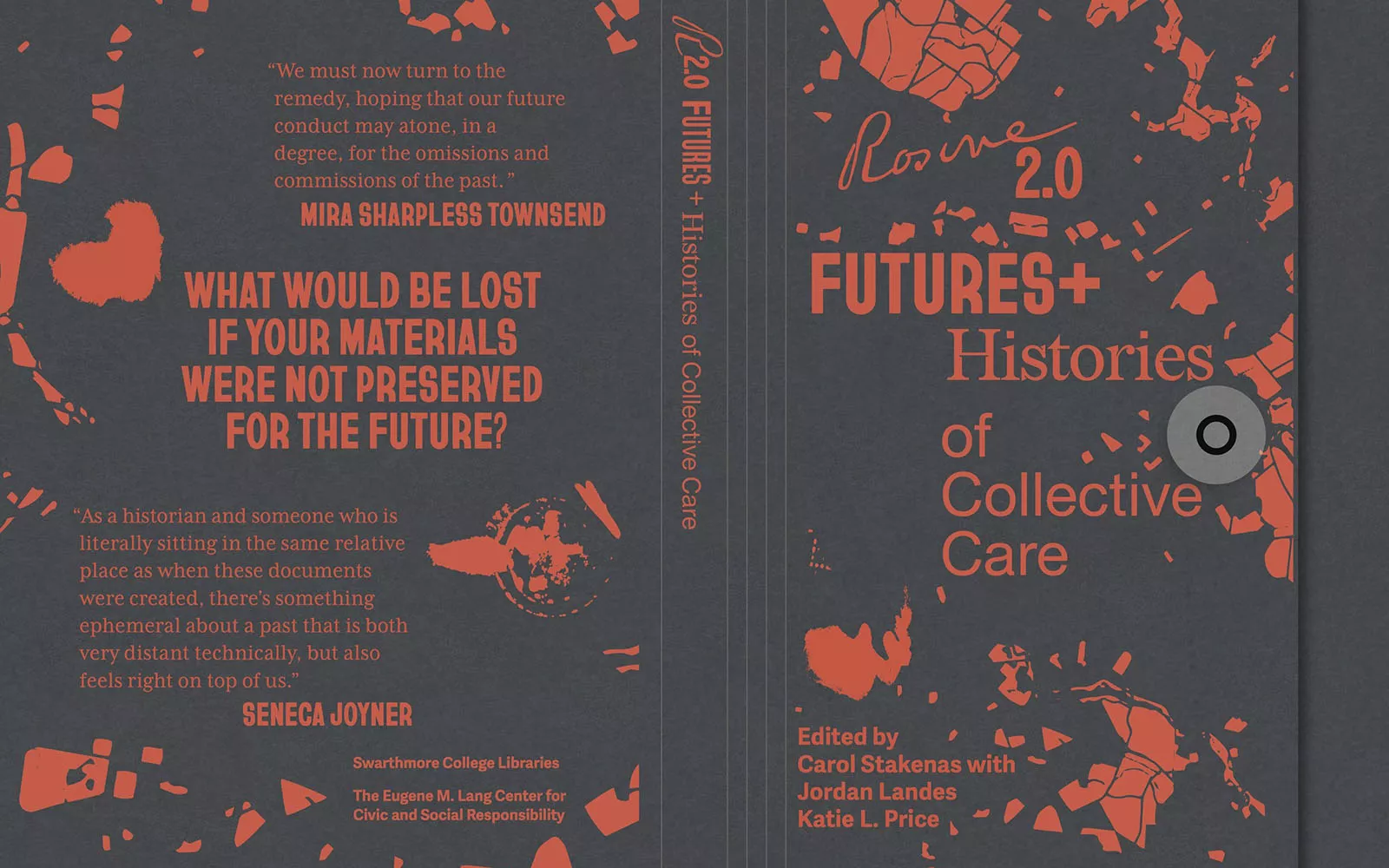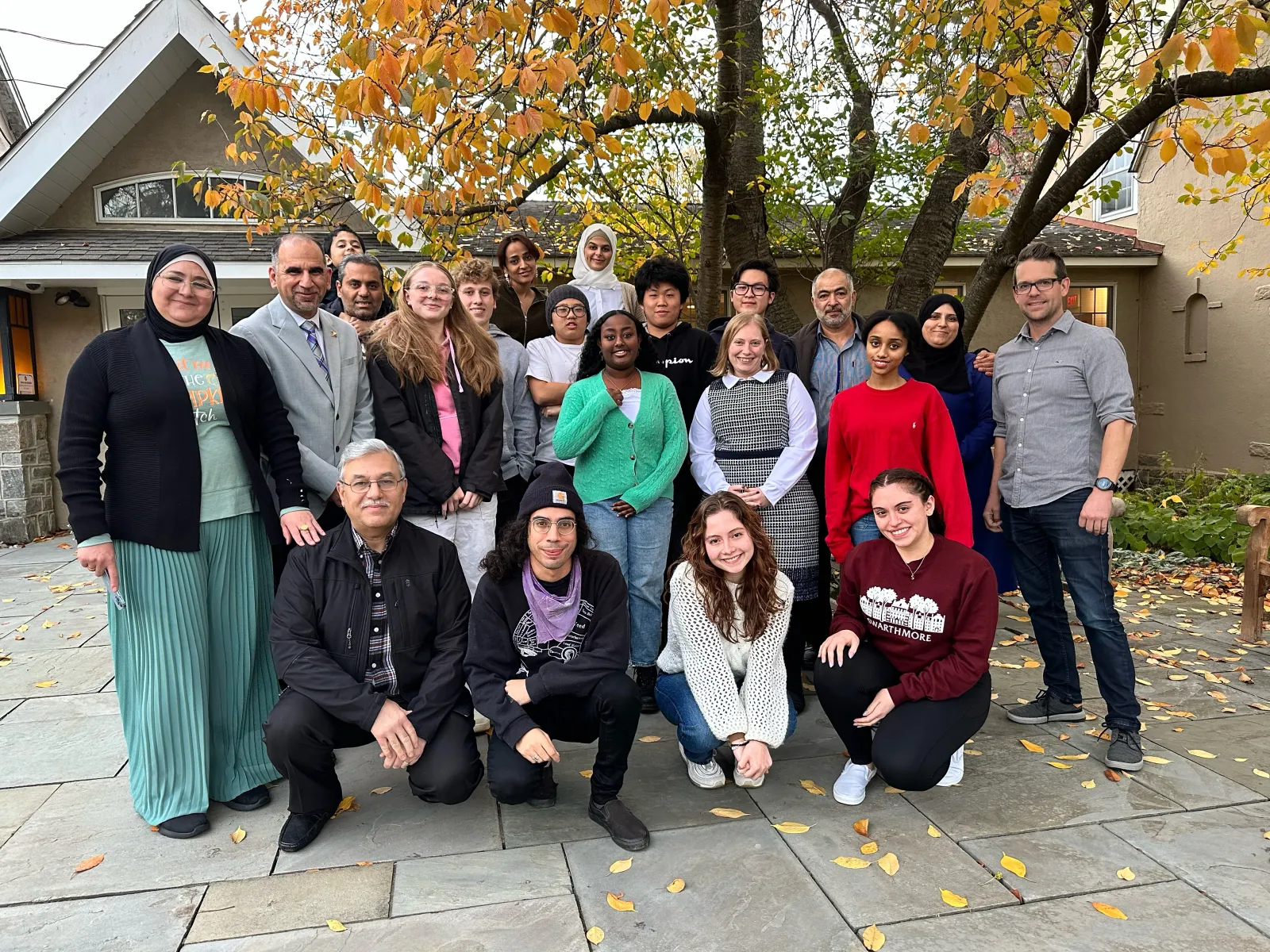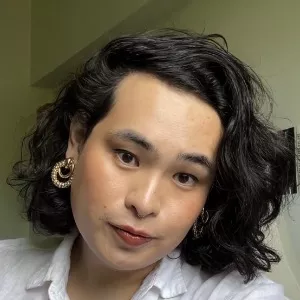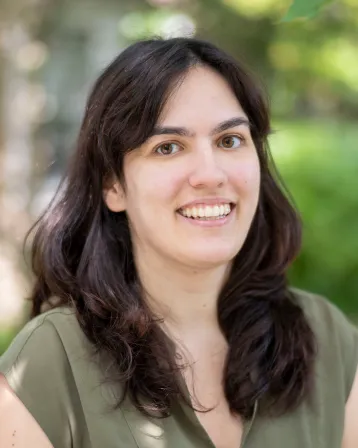- Crafting Kin: A Year of Socially Engaged Art
Paloma Checa-Gismero, assistant professor of Art History; Daniel Tucker, Philadelphia-based artist and curator; and socially engaged artists
By inviting social practice artists for a series of workshops and programming, Crafting Kin: A Year of Socially Engaged Art will foster a culture of dialogue and mutual aid among students and the Swarthmore community. Learning from others, the project invites us to think creatively and collectively about how to resist difficult historical times.
- Reparative Media Lab
Dahlia Li, visiting assistant professor and post-doctoral fellow of Gender & Sexuality Studies; Jemma Desai, Independent Curator & Cultural Worker; Amal Khalaf, Independent Curator & Cultural Worker; and Samia Labidi, Independent Curator & Cultural Worker
Four scholar-practitioners will come together to explore the meaning of repair and media through conversations rooted in somatics and diasporic/global south feminist cultural practices. They will create a free digital workbook that de-installs media from its traditional colonial framing and conceptually re-installs it within quotidian environs and embodied acts of creation.
- Bonding Forms: An Intercommunity Ceramics Exploration
Isabel Llosa, sustainability and engaged scholarship fellow at the Lang Center, artist and art educator; Devon Walls, artist and community developer; and Samara Weaver, artist
Bonding Forms: An Intercommunity Ceramics Exploration will strengthen relationships between the Chester, Swarthmore and Wilmington artistic communities through a collaborative ceramic workshop series. As a form of active meditation, working with clay relaxes the mind and opens space for creative connections and collective healing. The project will culminate with exhibitions in Chester and Swarthmore.
- A Multilingual Story: A Devised Performance By and About International Students
Joanna Hong ’27; Tyler Debrowski, artistic director, Philadelphia Theatre Company; Team Sunshine Performance
This project explores the challenges faced by international students at Swarthmore -- from the visa process to financial strain and racism. Through collaboratively devising a performance, it aims to create a platform for international students to share their stories in their own languages, while also fostering connection and support in the current political climate.
- Connecting Through Art: A Restorative Justice-Centered Mentorship Program
Neria Spence ’28; Youth Art Self-empowerment Project
Connecting Through Art: A Restorative Justice-Centered Mentorship Program will connect Philadelphia-based socially engaged artists with young artists from the Youth Art and Self Empowerment Project to create collaborative works and conversations that center on the power of socially engaged art as a vehicle of abolition and transformative justice.
Engaged Humanities Studio Contact
Katie Price
Director, Community Engaged Learning & Special Projects
Lang Center for Civic & Social Responsibility
Contact
Links
